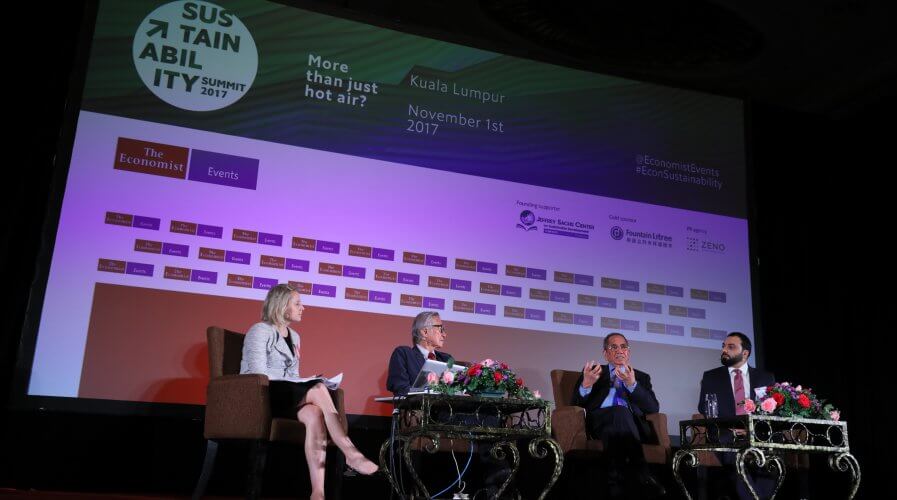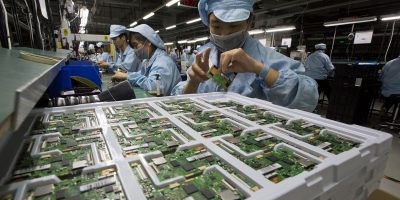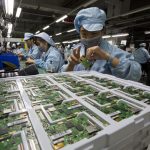
The Economist Sustainability Summit 2017 brought together policymakers, experts, researchers and industry leaders for conversations about business, the environment and what we can do about it. Source: The Economist
The Economist summit discusses how business and environment can strive together
THE ECONOMIST SUSTAINABILITY SUMMIT 2017 yesterday addressed issues posed by the rise of Asia in a time of global social, political and environmental flux, and discussed the opportunities and challenges for businesses, governments and individuals as we look to transforming our ecosystems and economies into more sustainable ones.
“Planetary changes are becoming increasingly rapid,” said Miranda Johnson, the Southeast Asia correspondent for The Economist and one of the moderators of the events. “Asia faces [their] wet places getting wetter, and their dry places getting drier. The costs of inaction are getting higher.”
She explained that despite contrarian views on the issue of climate change, the insurance industry is already offering reports that indicate the mounting costs of weather-related events. The successive storms that have plagued various corners of the world — from Hurricane Maria and Harvey battering the southern corners of North America, to Typhoon Haiyan and Paolo plaguing Hong Kong and the Philippines respectively — are costing governments millions of dollars in terms of clean up costs.
The summit was conceived as a forum that would engage 170 industry leaders, entrepreneurs, policymakers, regulators and leading Asian researchers in conversations about how we got here, and what we can do to transition to more sustainable systems.

Sachs says saving the environment is not a do-good agenda, but a necessary one. Source: The Economist
Understandings about “sustainability” varied across the board, but it was generally agreed upon that key to it are concerns about the environment and our ability to interact with it in a productive way. The event included prominent voices in the sustainability industry, such as conglomerate John Swire & Sons head of sustainability Mark Watson; Center for Liveable Cities chairman and Singapore’s former master planner Liu Thai Ker as well as Malaysia’s Natural Resources and Environment Minister Wan Junaidi.
Conversations ranged from how policy can work for both industry and the environment, to discussions about the developments in water management and climate research. The event was also deeply interested in topics about how business can benefit from sustainability, and how it’s no longer a niche concern but impactful on profits and growth.
Jeffrey Sachs, the chairman of the Jeffrey Sachs Center on Sustainable Development, at Sunway University, said:
“Saving the environment is not a do-good agenda. This is a necessary agenda.”
“Your business cannot thrive in the dangerous world that we are entering in. If we put our minds to it, we could end extreme poverty by 2030. Get some funds to public healthcare, improve sanitation, empower people with mass broadband because that brings in information and educates businesses.”
The conference also included perspectives from the young founders of Bye Bye Plastic Bags, a Bali-based movement by Melati and Isabel Wijsen targeted at achieving important sustainable goals from the grassroots level; technology innovators from Schneider Electric and Shenzhen Fountain Corporation; and government officials such as Malaysia’s Performance Management & Delivery Unit CEO Idris Jala.
READ MORE
- The criticality of endpoint management in cybersecurity and operations
- Ethical AI: The renewed importance of safeguarding data and customer privacy in Generative AI applications
- How Japan balances AI-driven opportunities with cybersecurity needs
- Deploying SASE: Benchmarking your approach
- Insurance everywhere all at once: the digital transformation of the APAC insurance industry




